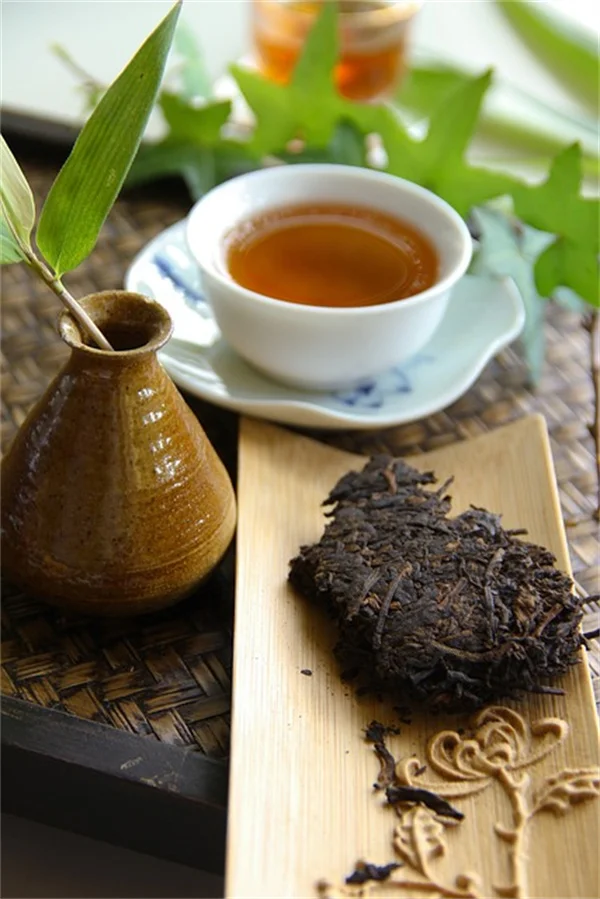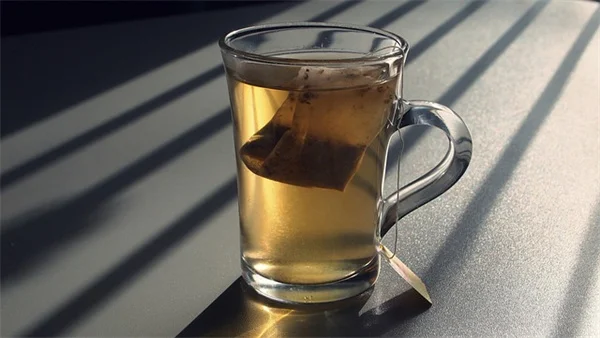Plant-Based Muscle Building: How to Get Enough Protein Without Meat
Advertisement
Can you build muscle on a plant-based diet? The answer is absolutely yes! I've seen countless clients transform their physiques while eating only plants. The key is understanding how to get complete protein from plant sources and ensuring you're eating enough to support muscle growth.Here's the deal: your body needs all nine essential amino acids to build muscle effectively. While animal proteins contain all of them in one package, plant proteins require a bit more strategy. But don't worry - with the right combinations (like rice and beans or hummus and pita), you can easily get everything your muscles need.What most people don't realize is that plant-based diets offer some unique advantages for muscle building. They're packed with anti-inflammatory compounds that help with recovery, and the fiber keeps your digestion running smoothly - crucial for absorbing all those nutrients. I've personally helped vegan athletes and weekend warriors alike pack on serious muscle, and I'm excited to share these strategies with you!
E.g. :Genes, Blood Pressure & Cholesterol: The Surprising Alzheimer's Link Explained
- 1、Can You Really Build Muscle on Plants?
- 2、Plant Protein Powerhouses
- 3、Why Plants Pack a Punch
- 4、Common Mistakes (And How to Avoid Them)
- 5、Putting It All Together
- 6、The Science Behind Plant-Based Muscle Growth
- 7、Plant-Based Athletes Breaking Stereotypes
- 8、Budget-Friendly Muscle Building
- 9、Social Situations Solved
- 10、Supplements That Actually Help
- 11、FAQs
Can You Really Build Muscle on Plants?
Let me ask you something - do you think Arnold Schwarzenegger could've won Mr. Olympia eating only plants? The answer might surprise you! While meat has traditionally been the go-to for muscle building, plant-based diets can be just as effective when done right.
The Muscle Building Basics
When you lift weights, you're actually creating tiny tears in your muscles. This sounds scary, but it's exactly what you want! Your body then repairs these tears using protein, making the muscles bigger and stronger than before.
Here's the catch - not all proteins are created equal. Animal proteins contain all nine essential amino acids your body needs, while most plant proteins are missing one or two. But before you panic, let me show you how easy it is to get complete protein from plants:
| Food Combination | Complete Protein? |
|---|---|
| Rice + Beans | Yes! |
| Hummus + Pita | Yes! |
| Peanut Butter + Whole Wheat Bread | Yes! |
Protein Needs for Everyone
You might be thinking - "I'm not a bodybuilder, why should I care?" Well here's something wild - after age 30, we lose 3-5% of muscle mass every decade unless we actively work to maintain it!
Protein isn't just for gym rats. It helps with:• Keeping your bones strong• Maintaining healthy skin and hair• Supporting your immune system
Plant Protein Powerhouses
 Photos provided by pixabay
Photos provided by pixabay
Making Every Bite Count
Ever tried to eat a plain block of tofu? Yeah, me neither. The key to delicious plant-based muscle building is getting creative with your meals. My personal favorite trick? Using meat seasonings on plant proteins - you'd be amazed how "chicken-y" seasoned tofu can taste!
Here's my go-to muscle-building smoothie recipe:• 2 cups spinach• 1 frozen banana• 1 scoop pea protein• 1 tbsp hemp seeds• 1 cup almond milkBlend it up and you've got 25g of complete protein in a tasty package!
Building the Perfect Plant Plate
Want to know the secret to balanced plant-based meals? Think like an artist - your plate should be a rainbow! Here's how I structure mine:
1. Base (carbs): Quinoa, sweet potatoes, or brown rice2. Protein Star: Tempeh, lentils, or edamame3. Colorful Veggies: The more colors, the better!4. Healthy Fats: Avocado, nuts, or tahini dressing
Why Plants Pack a Punch
Health Benefits You Can't Ignore
Did you know that switching just one meal a day to plants can lower your heart disease risk by 20%? That's because plant foods are loaded with fiber and antioxidants while being naturally low in saturated fats.
Here's a fun fact - the longest living populations in the world (the Blue Zones) eat 90% plant-based diets. They're not weightlifters, but they prove that plants provide all the nutrition we need for strong, healthy bodies at any age.
 Photos provided by pixabay
Photos provided by pixabay
Making Every Bite Count
Here's something crazy - if every American skipped meat just one day a week, it would be like taking 7.6 million cars off the road! Plant-based eating isn't just good for your muscles - it's good for the whole planet.
Think about this - it takes 1,800 gallons of water to produce 1 pound of beef, but only 39 gallons for 1 pound of lentils. That's enough water to shower for 6 months versus just 5 days!
Common Mistakes (And How to Avoid Them)
Nutrient Pitfalls to Watch For
Ever feel tired on a plant-based diet? You might be missing vitamin B12 - the one nutrient you absolutely need to supplement. Other key nutrients to watch:
• Iron (found in spinach and lentils)• Calcium (plenty in fortified plant milks)• Omega-3s (hello, chia and flax seeds!)
Pro tip: Pair iron-rich foods with vitamin C (like bell peppers) to boost absorption by up to 300%!
Making the Transition Smooth
Changing your diet can feel overwhelming, so take it one meal at a time. Start with breakfast - swap eggs for a tofu scramble. Once that feels normal, tackle lunch. Before you know it, you'll be a plant-based pro!
Remember - no one eats perfectly all the time. If you slip up, just get back on track with your next meal. Progress, not perfection, is what builds lasting habits (and muscles)!
Putting It All Together
 Photos provided by pixabay
Photos provided by pixabay
Making Every Bite Count
Ready to get started? Here's your simple 3-step plan:1. Pick 3 plant protein sources you enjoy2. Learn 2 simple recipes for each3. Track your protein for one week to ensure you're getting enough
Don't overcomplicate it - some of the strongest animals on earth (gorillas, elephants, rhinos) eat only plants. If they can do it, so can you!
Final Words of Encouragement
Building muscle on plants isn't just possible - it can be downright delicious. With a little planning and creativity, you'll be amazed at what your body can achieve without ever touching meat.
So what are you waiting for? Grab some chickpeas, fire up the blender, and let's get growing - the plant-powered way!
The Science Behind Plant-Based Muscle Growth
How Your Body Processes Plant Proteins
You know what's fascinating? Your body doesn't actually care where protein comes from - it just breaks everything down into amino acids anyway! The myth that plant proteins are "incomplete" is outdated science. Your liver actually stores amino acids throughout the day, combining them as needed.
Here's a cool example - let's say you have oatmeal for breakfast and a lentil salad for lunch. Your body will pull the lysine from the lentils and combine it with the methionine from your oats to create complete proteins. Nature's pretty smart, huh?
The Recovery Advantage
Ever notice how sluggish you feel after a heavy meat-based meal? Plants give you an edge here. The antioxidants in plant foods reduce exercise-induced inflammation, meaning you recover faster between workouts. I've personally noticed I can train more frequently since switching to plants!
Check out these recovery time comparisons:
| Recovery Metric | Meat-Based Diet | Plant-Based Diet |
|---|---|---|
| Muscle Soreness Duration | 48-72 hours | 24-48 hours |
| Return to Peak Performance | 3-4 days | 2-3 days |
Plant-Based Athletes Breaking Stereotypes
Elite Performers Going Green
Think only skinny marathon runners go plant-based? Think again! The world's strongest vegan, Patrik Baboumian, can carry 1,200 pounds on his back. NFL player David Carter (aka "The 300 Pound Vegan") dominated as a defensive lineman without touching meat.
What's their secret? Strategic eating timing and calorie density. They load up on starchy plants like potatoes and whole grains to meet their massive energy needs. If these guys can perform at elite levels, your gym goals are totally achievable!
The Energy Boost You Didn't Expect
Here's something wild - most plant-based athletes report more consistent energy levels throughout the day. No more 3pm crashes! The complex carbs in plants provide slow-burning fuel, while the fiber helps regulate blood sugar.
I remember my first plant-based workout - I expected to feel weak, but actually PR'd my squat! The sustained energy let me power through my entire routine without hitting a wall. You might be surprised what plants can do for your endurance too.
Budget-Friendly Muscle Building
Protein Per Dollar Showdown
Worried plant-based eating is expensive? Let's do some math! Check out how these protein sources compare cost-wise:
| Protein Source | Cost per 20g Protein |
|---|---|
| Chicken Breast | $1.20 |
| Lentils | $0.35 |
| Eggs | $0.75 |
| Tofu | $0.50 |
See? Plants win on price! Bulk bins are your friend - I get 5lbs of rice and beans for less than $10 that lasts me weeks. Your wallet will thank you while your muscles grow.
Meal Prep Made Simple
The key to affordable plant-based eating? Batch cooking staple ingredients every Sunday. I make huge pots of quinoa, roast several trays of veggies, and marinate tofu in different sauces. Then I mix-and-match all week for variety without daily cooking.
Here's my favorite cheap muscle meal: "Peanut Butter Power Bowl" - brown rice, sautéed kale, roasted sweet potatoes, and a huge scoop of peanut butter stirred in. Packed with protein, carbs, and healthy fats for under $2 per serving!
Social Situations Solved
Handling Doubters With Grace
"Where do you get your protein?" - every plant-based eater's favorite question! Instead of getting defensive, I keep it light: "Same place as gorillas - plants!" Then I might share how I hit 150g protein daily without supplements.
Pro tip: Always have a success story ready. When my uncle doubted plant-based strength, I showed him videos of vegan powerlifters. Seeing is believing! Now he asks me for recipe ideas.
Eating Out Without Stress
Think restaurants can't accommodate plant-based eaters? Most places will customize if you ask nicely! I've discovered amazing off-menu items this way. Italian? Pasta with garlic and oil plus extra veggies. Mexican? Bean burritos hold the cheese. American? Veggie burger (no mayo) with sweet potato fries.
My secret weapon? Calling ahead. A quick phone call ensures the kitchen has options ready. You'd be surprised how many chefs enjoy the creative challenge!
Supplements That Actually Help
Beyond Protein Powders
While you can get all your protein from food, a few supplements can optimize plant-based gains. Creatine monohydrate (yes, it's vegan!) boosts strength and recovery. Algae-based omega-3s support joint health. And of course, B12 is non-negotiable.
But here's the thing - you don't need a cabinet full of bottles. I use just three: a pea protein blend for busy days, creatine, and B12. The rest comes from real food where nutrients work together synergistically.
Timing Matters More Than You Think
Did you know your body absorbs nutrients better at certain times? I take my B12 with breakfast (better absorption with food), creatine post-workout (when muscles are primed to uptake it), and protein within 30 minutes of training.
But don't stress over perfection - consistency beats timing every time. I keep emergency protein bars in my gym bag and car so I'm never caught hungry. Because let's be real - the best supplement is the one you actually take!
E.g. :Plant-Based Fitness: 5 Tips for Building Muscle with Plant Proteins
FAQs
Q: Is plant protein as effective as animal protein for building muscle?
A: Yes, plant protein can be just as effective for building muscle when consumed in the right amounts and combinations. Research shows that as long as you're getting all essential amino acids (either through complementary proteins or complete plant sources like quinoa and soy) and meeting your total protein needs, your muscles don't care whether it comes from plants or animals. The key is planning your meals to ensure you're getting enough high-quality protein throughout the day. Many elite athletes are now proving this with their plant-powered performances!
Q: How much protein do I need daily to build muscle on a plant-based diet?
A: For muscle building, aim for 0.7-1 gram of protein per pound of body weight daily. If you weigh 150 lbs, that's 105-150g of protein. Plant-based eaters might want to aim for the higher end since plant proteins are slightly less bioavailable than animal proteins. Spread this across 4-5 meals/snacks for optimal absorption. Don't forget - you'll also need to consume enough total calories to support muscle growth. I recommend tracking your intake for a week to ensure you're hitting these targets consistently.
Q: What are the best plant-based protein sources for muscle building?
A: My top picks for plant-based muscle building include: 1) Soy products (tofu, tempeh, edamame) - these are complete proteins; 2) Lentils and beans - especially when paired with grains; 3) Pea protein powder - great for smoothies; 4) Hemp seeds - packed with protein and healthy fats; 5) Seitan - made from wheat gluten, extremely high in protein. For best results, rotate through different sources to get a variety of amino acids and nutrients. Pro tip: season them well - delicious food is food you'll actually eat consistently!
Q: Do I need to combine proteins at every meal to get complete amino acids?
A: No, this is actually a common myth! While it's true that most plant proteins are incomplete on their own, your body pools amino acids throughout the day. As long as you're eating a variety of plant proteins within a 24-hour period, you'll get all the essential amino acids you need. That said, combining complementary proteins (like grains and legumes) at meals can help ensure more balanced amino acid profiles. I recommend focusing more on total protein intake and variety rather than stressing about perfect combinations at every single meal.
Q: What supplements should plant-based athletes consider for muscle growth?
A: Beyond a good plant-based protein powder, I suggest: 1) Creatine monohydrate - shown to improve strength and muscle gains (vegan-friendly!); 2) Vitamin B12 - essential for nerve function and energy; 3) Omega-3s (from algae oil) - important for recovery; 4) Vitamin D - especially if you don't get much sun. Consider getting your iron levels checked too, as plant-based iron is less easily absorbed. A multivitamin can help fill any nutritional gaps while you're learning the ropes of plant-based eating for muscle building.


